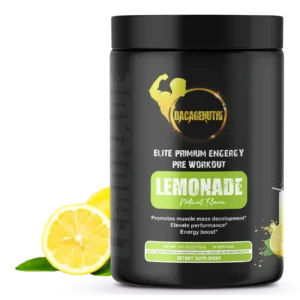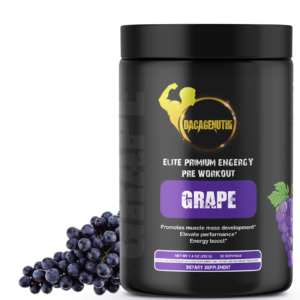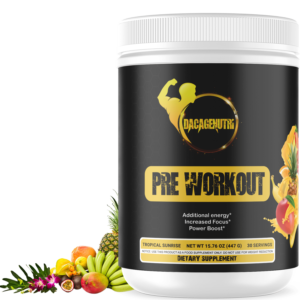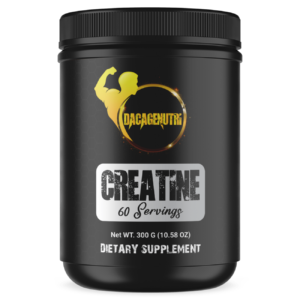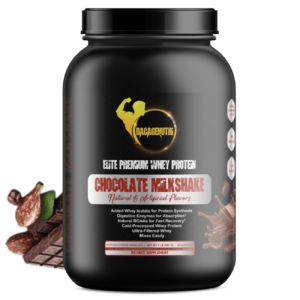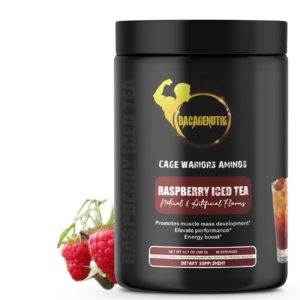What is the Role of Nutrition in Overall Wellness?

In our fast-paced world, where convenience often takes precedence over conscious choices, the importance of nutrition tends to be overlooked. But a closer look at the impact of nutrition on our physical and mental well-being reveals a profound connection.
From nourishing our bodies to fueling our minds, nutrition has a pivotal role in building up our health. In this article, we will delve into the depths of this connection. We will be highlighting the significant role of nutrition in achieving and maintaining overall wellness.
-
Fueling the Body, Energizing the Mind:
Nutrition serves as the foundation for our bodies, providing the essential fuel needed for optimal functioning. Just as a car requires quality fuel to run smoothly, our bodies require a balanced diet to perform. The food we consume acts as a source of energy, providing the necessary nutrients for our bodies. A diet rich in proteins, fruits, and vegetables offers sustained energy, improved focus, and enhanced cognitive function. It allows us to excel in our daily activities and pursuits.
-
Strengthening the Immune System:
A strong immune system is crucial for warding off illnesses and maintaining overall health. Proper nutrition plays a vital role in bolstering our immune defenses, helping to protect us from harmful pathogens. Nutrients such as vitamins as well as minerals like zinc and selenium, all contribute to a robust immune system.
Including a variety of fruits, vegetables, nuts, seeds, and lean proteins in our diet can supply the necessary nutrients. These nutrients support the immune system’s function, enabling us to better fight off infections and maintain our well-being.
-
Supporting Mental Health:
The mind and body are intricately connected, and nutrition has a profound impact on our mental well-being. Research has shown a clear link between the quality of our diet and our mental health. A diet rich in essential nutrients such as fatty acids, vitamins, magnesium, and antioxidants has been in connection with a lessened risk of depression, stress, and anxiety.
On the other side, diets high in artificial foods, sugar, and fats have been linked to an increased risk of anxiety and mental disorders. By nourishing our bodies with wholesome foods, we can promote a positive mental state. We can also improve our mood and enhance our overall psychological well-being.
-
Preventing Chronic Diseases:
Chronic diseases, such as myocardial infarction, diabetes mellitus, and certain tumors, are major contributors to illness. Fortunately, nutrition plays a pivotal role in their prevention. A balanced diet that focuses on whole foods, ample fruits, and vegetables can help reduce the risk of chronic diseases.
For instance, a diet low in saturated and trans fats, combined with regular physical activity, can lower the risk of cardiovascular diseases. Similarly, consuming a diet rich in fiber and antioxidants can reduce the likelihood of developing type 2 diabetes. By prioritizing nutrition, we empower ourselves with a powerful tool for disease prevention and longevity.
-
Promoting Longevity and Vitality:
When we provide our bodies with the nutrients they need, we pave the way for long-term health and vitality. Proper nutrition not only protects us from diseases but also supports healthy aging. A diet rich in antioxidants and anti-inflammatory compounds found in fruits, vegetables, and whole grains, can help slow down the aging process. It reduces the risk of age-related ailments. By adopting a nutrient-dense diet, we increase our chances of enjoying a vibrant life well into our golden years.
What Does a Nutritionally Adequate Diet Consist Of?

A nutritionally adequate diet consists of a wide variety of nutrient-rich foods that provide the body with the necessary vitamins. It also provides minerals, proteins, carbohydrates, healthy fats, and dietary fiber to function optimally. Here is an elaboration on the key components of a nutritionally adequate diet:
-
Fruits and Vegetables:
Including a colorful array of fruits and vegetables is essential. These are rich in essential vitamins, necessary minerals, antioxidants, and fiber. Aim for a diverse range of options to maximize nutrient intake. Incorporate leafy green vegetables, oranges, berries, citrus fruits, and others to ensure a broad spectrum of beneficial nutrients.
-
Whole Grains:
Whole grains such as quinoa, brown rice, whole wheat, oats, and barley provide complex carbohydrates, fiber, B vitamins, and minerals. They are a healthier choice compared to refined grains, as they retain the bran and germ, which contain valuable nutrients.
-
Lean Proteins:
Protein is crucial for building muscle mass and repairing tissues. It supports our immune function and maintains muscle support. Opt for lean sources like poultry, fish, eggs, legumes (beans, lentils, chickpeas), tofu, and low-fat dairy products. For vegetarians and vegans, combining plant-based proteins (such as legumes and grains) can ensure adequate protein intake.
-
Healthy Fats:
Contrary to popular belief, not all fats are harmful. Healthy fats like monounsaturated and polyunsaturated fats are required for brain health, the production of hormones, and the absorption of required fat-soluble vitamins. However, you must include sources like avocados, nuts, seeds, fatty fish (salmon, mackerel), olive oil, and flaxseed in moderation into your diet.
-
Dairy or Dairy Alternatives:
Dairy products provide calcium, essential vitamins, and other proteins. Opt for low-fat or non-fat versions to reduce saturated fat intake. If you’re lactose intolerant or follow a vegan diet, consider alternatives for milk available in the market. These alternatives include raw milk, almond milk, powdered milk, or oat milk, which provide similar health benefits.
-
Hydration:
Staying properly hydrated is essential for overall health. Water is the best choice for hydration. Limit sugary drinks and excessive caffeine intake. Herbal teas, infused water, and unsweetened beverages are also suitable options to maintain hydration levels.
-
Limited Added Sugars and Sodium:
Excess consumption of added sugars and sodium has been linked to various health issues. Minimize intake of sugary beverages, sweets, processed snacks, and high-sodium foods. Read labels carefully and choose options with lower sugar and sodium content.
-
Portion Control and Moderation:
Maintaining portion control and moderation is crucial. Even with nutritious foods, consuming excessive quantities can lead to weight gain and other health problems. Check the portion sizes, and aim for balance in your meals.
-
Personalization and Dietary Restrictions:
Everyone has his own nutritional needs that can vary based on different aspects, including the age of the person, gender and amount of activity level, and other specific conditions. If you have dietary restrictions, allergies, or medical conditions, work with a dietitian. This is to develop a customized and personalized eating plan that meets your specific body needs.
Remember, a nutritionally adequate diet is not about strict rules or deprivation. It is rather about making informed choices and building a sustainable and enjoyable relationship with food. Embrace the diversity of whole foods, prioritize nutrient density, and strive for balance and moderation in your eating habits. This will help you to support your overall well-being.
Role of Nutrition and Physical Activity for a Lifelong Health

Promoting lifelong health and well-being is a global priority. The interplay between nutrition and health has long been recognized as fundamental to achieving optimal outcomes. A research was published in June 2019 by Karsten Koehler at the National library of Medicine. Both nutrition and physical activity play crucial roles in various aspects of human health.
It includes growth and development, disease prevention, and overall well-being. This research paragraph aims to highlight the integrated role of nutrition and physical activity in promoting lifelong health. According to it, nutrition provides the essential building blocks for the growth, maintenance, and repair of the human body.
A well-balanced diet rich in essential nutrients is crucial for optimal physical and cognitive development. Adequate nutrition supports the body’s energy requirements, immune function, and the prevention of various nutrient-deficiency disorders.
Proper nutrition, combined with regular activity, plays a key role in the prevention of chronic diseases. A healthy diet consisting of fruits and vegetables helps maintain a healthy body weight and reduces the risk of myocardial infarction.
Along with proper nutrition, regular physical activity, such as aerobic exercise and strength training, is necessary. They further enhance the body’s ability to manage normal sugar levels, lower blood pressure, and improve cardiovascular fitness.
The integrated approach of nutrition and physical activity is vital for maintaining a healthy body weight. Proper nutrition promotes a balanced energy intake, ensuring that the body receives the necessary nutrients without excessive calorie consumption. Physical activity aids in energy expenditure, helping to achieve energy balance and prevent weight gain. Additionally, regular exercise helps preserve lean muscle mass. This is important for maintaining a higher metabolic rate and overall weight management.
Conclusion:
As we conclude our exploration into the role of nutrition in overall wellness. The significance of making informed dietary choices becomes evident. Nutrition acts as the cornerstone of our well-being, fueling our bodies. It supports our immune systems, nurturing our mental health. It prevents chronic diseases and promotes longevity.
By embracing the power of nutrition and prioritizing a balanced diet, we empower ourselves to lead healthier, more fulfilling lives. Let us make a commitment to nourish ourselves and unlock the transformative benefits of nutrition.





